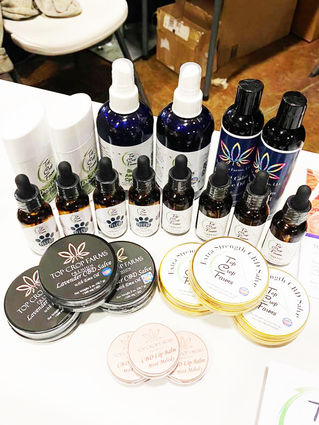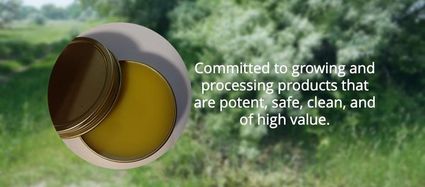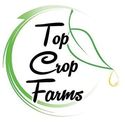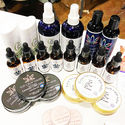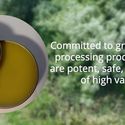Blaine County Beacon: A Pre-med Path Takes a Turn
April 1, 2020
Helping others has always been one of Rob Klingaman's life-long motivations. That affinity, coupled with his desire to be one of those that the public looks to in a time of need, may explain why he initially pursued and was accepted to attend the Naval Academy in June 2013. However, after learning that two shoulder injuries would limit his service selection to only the supply corps, he separated from the military in January 2015 and enrolled at Montana State University (MSU) in Bozeman to finish his education with a focus on pre-med. On that path, in 2018, he earned a Bachelor of Science Degree in Biology.
In preparation for a career in medicine, during the summer of 2016, Klingaman traveled to India for approximately six weeks with an organization currently called Hands on Global, a medical group that volunteers in locations all over the world. He served in a hospital located in a town called Zanskar in the northern region of Ladakh.
The following summer he traveled to Italy, Germany, and the Czech Republic with a student group called the Atlantis Project, which allows pre-med students to shadow doctors in foreign countries. Klingaman spent about six weeks observing how physicians interact with patients and perform procedures at the San Raffaele Hospital in Milan, Italy.
While on these trips, Klingaman learned about alternatives to Western medicine, discovering a preference for various natural cures to modern ailments. During his study about neurodegeneration-which refers to the progressive atrophy and loss of function of neurons, present in diseases such as Alzheimer's and Parkinson's-Klingaman came across research celebrating the effects of hemp and CBD oil.
Advanced classes at MSU armed him with the ability to decipher primary research articles, articles that contained information about neurodegenerative diseases, such as Alzheimer's and Parkinson's, which are characterized by a loss of neurons in particular regions of the nervous system. The research implicated a range of mutant genes and environmental toxins as the cause of neurodegenerative disorders.
Since, at present, few therapies exist for the wide range of neurodegenerative diseases, scientists are still in search of therapeutic approaches to the problem of neuron death. As Klingaman read further, he learned that an early contribution of neuroprotective and anti-inflammatory strategies for these disorders is particularly desirable because isolated treatments have not proven effective.
In this contest, marijuana derivatives have attracted special interest, although these compounds have always raised several practical and ethical problems for their potential abuse. Nevertheless, among cannabis compounds, cannabidiol (CBD), which lacks any unwanted psychotropic effect, may represent a very promising agent with the highest prospect for therapeutic use.
A phytocannabinoid with therapeutic properties for numerous disorders, CBD acts in some experimental models as an anti-inflammatory, anticonvulsant, anti-oxidant, and antipsychotic agent. These results mark CBD as a potential medicine for the treatment of conditions such as epilepsy, anxiety, schizophrenia, and the neuro-inflammation common in neurodegenerative diseases.
With the increase in life expectancy, many of these brain-related diseases end up affecting a large portion of the population. Dr. George Bartzokis, a widely published researcher and professor of psychiatry at the Semel Institute for Neuroscience and Human Behavior at UCLA, released a research report in 2012 that found that the origin of these diseases is linked to the excessive accumulation of iron in some areas of the body.
Although Dr. Bartzokis doesn't identify CBD as a potential remedy, the results of the study do identify a number of nutrients that can help reduce the body's total exposure to iron through antioxidant activity. Because CBD is a natural antioxidant, it has potential to slow the progress of such neurodegenerative diseases like Alzheimer's and Parkinson's, as well as cardiovascular events, brain damage, and alcohol damage. Other studies confirm the neuroprotective properties of CBD.
That research was a lightbulb moment for Klingaman: "I figured that mixing my knowledge of science with my family's knowledge of farming, and a lot of hard work, we could create the perfect business combination," he said.
And so, Top Crop Farms, LLC was born. Top Crop Farms is a corporation with five owners/business partners: Rob, Larry, and Bobbi Klingaman, Derek Bell, and Dylan Surber.
About the birth of the business, Rob's mother recalls: "Robby and Dylan initially started Top Crop Farms in 2017. Robby was graduating from college and Dylan was working on his music career at the time. Robby came home for Christmas, and I remember walking into my parent's house for Christmas Eve dinner to find Rob sitting at the counter. The aura in the room was a bit tense and, even though nobody was saying anything, I could tell something was up. I kept asking Rob questions until he broke and told me he was not going to go to his medical school entrance interviews but was going to start a hemp farm. Honestly, I was worried for him at the time, but his mind was made up."
Klingaman planted hemp plants in the family garden that first year and extracted the oil himself. "I grew up in the agriculture industry, doing everything from farming/ranching to cutting meat and business management. Having taken classes like organic chemistry, biochemistry, and the accompanying labs enabled me to jump right into the oil extraction business with little outside input."
Klingaman gave some of this crude oil to his parents to make salve. His mother reported: "We tried that first batch and had great results. Larry has some arthritis in his hands and some pain from a broken ankle from college, and the salve helped with both. Larry then talked to Rob about expanding his business to include us and we would help by providing equipment with growing hemp on a larger scale and making products. Since hemp is a newly revived crop, it has been challenging to find ways to grow, harvest, and process it. Still, we hope to grow hemp as a cash crop this year."
Surber has taken over the social media management and is active in making products, such as salves, deodorants, lip balms, essential oils, lotions, topicals, and bug spray. One of their products, the Sage and Sweetgrass Salve is made with sage essential oil blended with shea butter, coconut oil, locally sourced beeswax, vitamin E, and sweetgrass fragrance oil. It offers both healing and calming.
According to the Top Crop Farms website, their various salves offer the following benefits: anti-inflammatory, antioxidant, muscle pain relief, anxiety reduction, and skin rejuvenation.
Another Top Crop partner, Bell managed and maintained the fields this past summer. He currently helps anywhere he's needed. Both Surber and Bell are originally from Chinook but are now growing and processing hemp near Harlem.
The business' mission, as shared on their website, suggests that "Top Crop Farms is committed to growing and processing Montana products that are effective, reliable, and safe for our customers. Just as importantly, we want to add value to our community by researching and processing hemp close to where it is grown. We will strive to create and retain value in our farming community through investment in facilities, partnerships with local farms, and education and training of local people."
As the group continues to explore the many uses of CBD and to network with farmers across the country, Klingaman will seek out information that is useful to his company, as well as to the public. "I plan to continue providing quality CBD products to the Hi-Line while expanding across the Pacific Northwest. We have been working on building and designing hemp fiber processing equipment that will enable us to utilize the entire plant. I am also part of the Montana Hemp Cooperative, which is a group of local farmers looking to set up a fiber processing facility that will provide a state-wide outlet for fiber while keeping money and jobs local," he explained.
Top Crop Farms, which has products available for purchase online as well as in various local area stores, also hopes to have a presence at more vendor events and community events like the Seed Show. "We plan on participating in more local events such as these mainly for the purpose of being able to answer questions face-to-face. Since hemp is such a new business nationally, these events are one way to provide education to local people about an exciting and useful product being grown and manufactured right here. Also, it's a great way for local people to put a face to the business," Klingaman said.
With the help of his mechanically-minded father, Klingaman built a decorticator, a machine that breaks down the hemp plant stems and separates it into hurd and bast fibers. This separation enables Top Crop Farms to expand into the hemp fiber market for such products as animal bedding.
Initially, Klingaman anticipated that there might be some resistance from the community with Top Crop Farms trying to grow and process a crop that greatly resembles marijuana, but, much to his relief, the community has widely accepted what he is doing and, in his words, "continues to show amazing support."
Frequently, when someone mentions hemp and CBD, people will immediately think "drugs," because they confuse CBD with marijuana or the tetrahydrocannabinol (THC) compound, which is known for generating a "high" with users. However, CBD doesn't have the psychoactive benefits of THC, cannabis's more famous cannabinoid, although it does have other potentially beneficial effects. Research suggests CBD may help reduce anxiety, relieve pain, and offer neuroprotective properties.
CBD is derived from cannabis plants in much the same way that caffeine is derived from the coffee bean, or aspirin from the bark of a willow tree. CBD oil is the most common form of administration of the compound with the oil contained in a gel cap or dropper bottle.
"Since hemp is a new industry, another challenge is finding honest people in the industry. Most people in hemp have quite a few horror stories and will tell you about everyone from shady seed suppliers to dishonest processors. I learned very quickly that a handshake doesn't mean anything nowadays, and many farmers have yet to be paid on contracts as well," Klingaman stated.
However, he was quick to respond that the rewards are equally remarkable. "One of the greatest rewards has been hearing how much our products have positively impacted the lives of our customers. I would like to extend a huge thanks to all of our customers and local business owners for their support.
"Another reward is getting to work with my favorite people on this planet. I cannot say enough about Dylan Surber, Derek Bell, and my parents. They truly make every day worth living."
When asked what advice, experience, or tidbit of wisdom he would like to share with others, Klingaman responded with a list: "Do your research, find a mentor, ask too many questions, don't be afraid of failure, write down your goals, hold yourself accountable, and get better every day."
Although some might think that Klingaman's pre-med path has appeared to detour, he is still dedicated to relieving pain, reducing anxiety, and offering people an improved quality of life.

